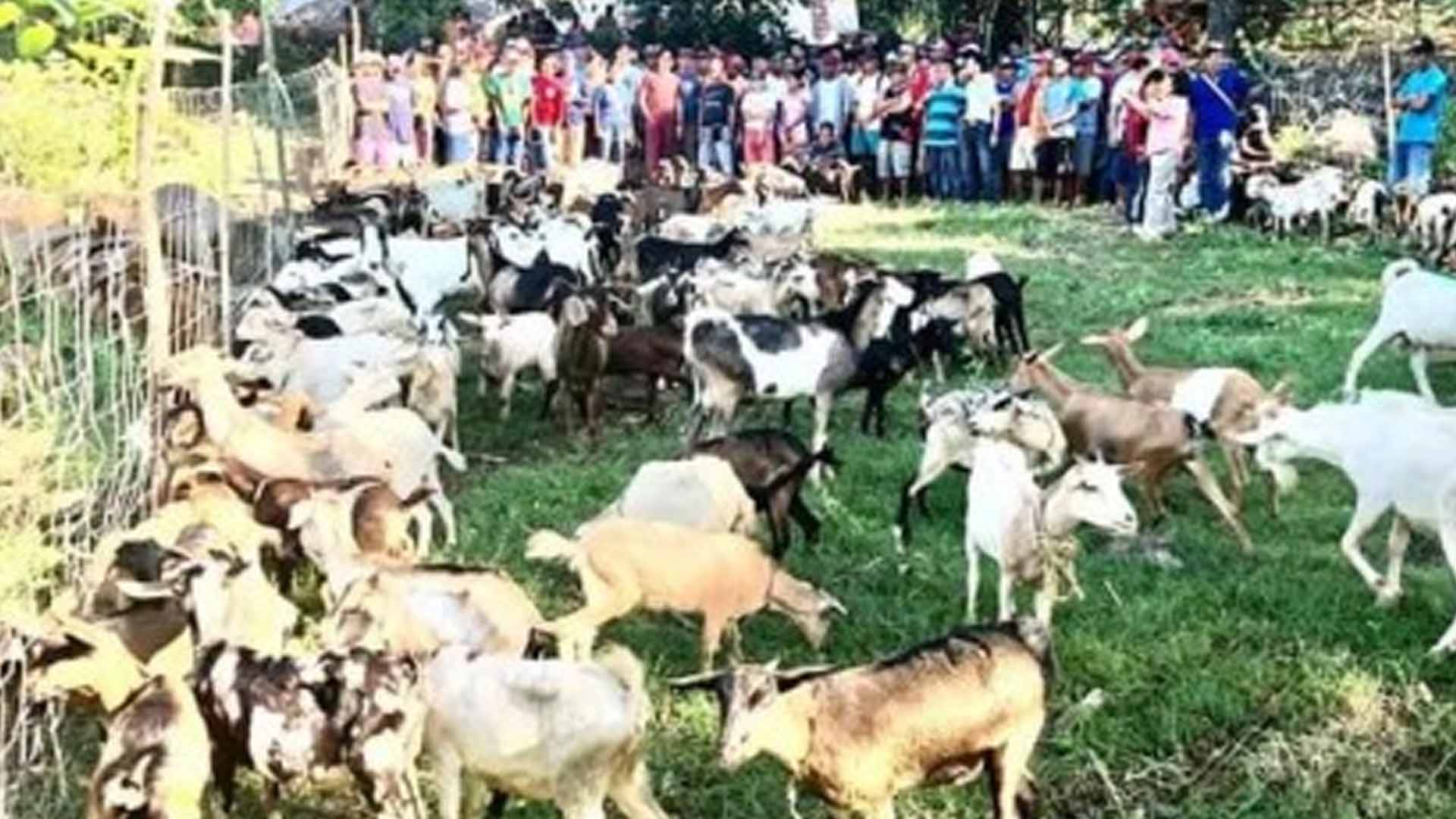In the town of Piddig, goat raising is slowly becoming popular as its local government unit hopes to have its own goat center in the future.
To jump start the project, at least 300 goats were distributed on Tuesday to farmer-beneficiaries from the town’s 23 barangays.
Piddig Mayor Eduardo “Eddie” Guillen said goat production is economically valuable in the province as it low maintenance and it is a favorite delicacy during family gatherings and other Ilokano festivities.
“Goats require less feed and easy to handle. I hope that you will take good care of them and make our town to be known as goat center in the province,” Guillen told the recipients during a simple turn-over ceremony.
The goat dispersal program of the local government aims to boost the income of its farmers as they are encouraged to diversify their source of livelihood.
Records from the Philippine Council for Agriculture, Forestry and Natural Resources Research and Development (PCARRD) showed the number of goats in the Philippines has been increasing consistently.
In 1990, there were about 2.2 million goats in the country.
Today, the country is home to over 3.3 million goats. Among the goats raised by most Filipino farmers are the Philippine strain (also known as the common goat) and the Dadiangas goat (which originated from General Santos City).
Some farmers are also raising exotic breeds, which include Anglo-Nubian, Toggernburg, Saanen, French Alpine, and Boer.
Aside from goats, native pigs and free ranged chicken were earlier distributed to them as part of uplifting the locals way of life.
For those who were not included in the goat dispersal program, the Piddig government assured there will be another round of livestock distribution which includes sheep, ducks buffalo, and free ranged chicken. (PNA)







